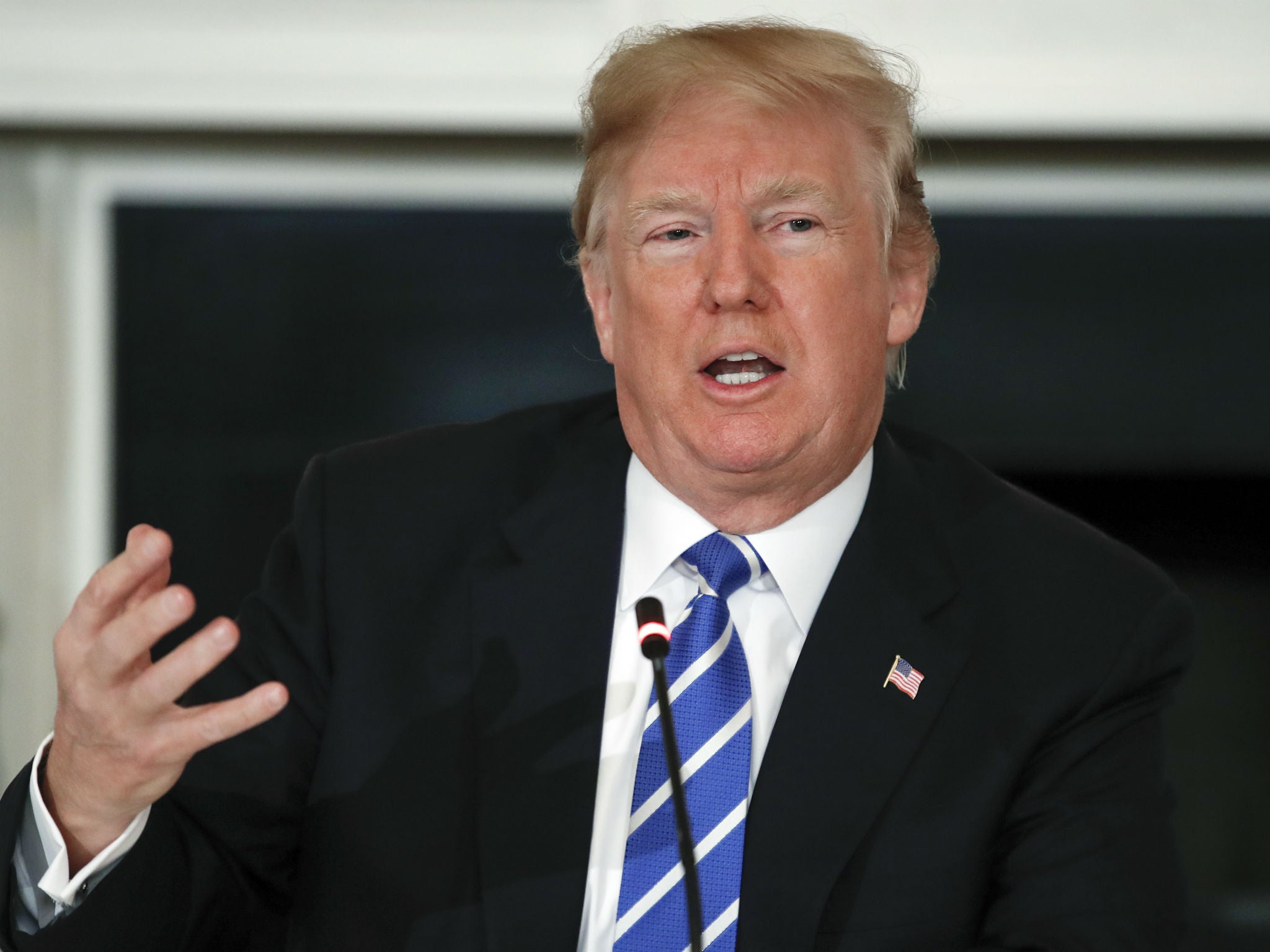Trump suggests reciprocal tax with trade partners to stop US being 'taken advantage of by other countries'
President returns to a trade idea he says will be more fair to America

Your support helps us to tell the story
From reproductive rights to climate change to Big Tech, The Independent is on the ground when the story is developing. Whether it's investigating the financials of Elon Musk's pro-Trump PAC or producing our latest documentary, 'The A Word', which shines a light on the American women fighting for reproductive rights, we know how important it is to parse out the facts from the messaging.
At such a critical moment in US history, we need reporters on the ground. Your donation allows us to keep sending journalists to speak to both sides of the story.
The Independent is trusted by Americans across the entire political spectrum. And unlike many other quality news outlets, we choose not to lock Americans out of our reporting and analysis with paywalls. We believe quality journalism should be available to everyone, paid for by those who can afford it.
Your support makes all the difference.Donald Trump has called for a “reciprocal tax” with America’s international trading partners, continuing his push to remake what he calls unfair global economic relationships.
“We are going to charge countries outside of our country – countries that take advantage of the United States. Some of them are so-called allies but they are not allies on trade,” Mr Trump said during an event highlighting his administration’s infrastructure proposal, adding that “We cannot continue to be taken advantage of by other countries”.
While the White House did not elaborate on the proposal's specifics, it echoes a notion Mr Trump has floated in the past: essentially, taxing foreign imports at the same rate as other countries tax America’s exports.
“Reciprocal is, if you’ve got a 30 percent tariff, you know what, we should have a 30 percent tariff,” Mr Trump told German Chancellor Angela Merkel last year, according to chief economic adviser Gary Cohn.
Some economists have called the idea unworkable, arguing that it would upend trade deals that undergird the global economy and allow countries to favour particular trading partners or to promote certain domestic industries — including trade obligations America has agreed to abide by.
But the idea hews to Mr Trump’s animating trade principal that America has accepted a series of bad deals in the era of globalisation and free trade.
“I love a reciprocal tax,” the President told Bloomberg last year. “Nobody can fight it. It’s fair and it’s something that we are working on very strongly.”
He pulled America from an Asian economic pact called the Trans-Pacific Partnership and has pushed for the renegotiation of the North American Free Trade Agreement, suggesting he could ultimately pull America from the agreement.
The reciprocal tax concept ultimately did not make it into a sweeping tax overhaul that Mr Trump championed last year.
Join our commenting forum
Join thought-provoking conversations, follow other Independent readers and see their replies
Comments